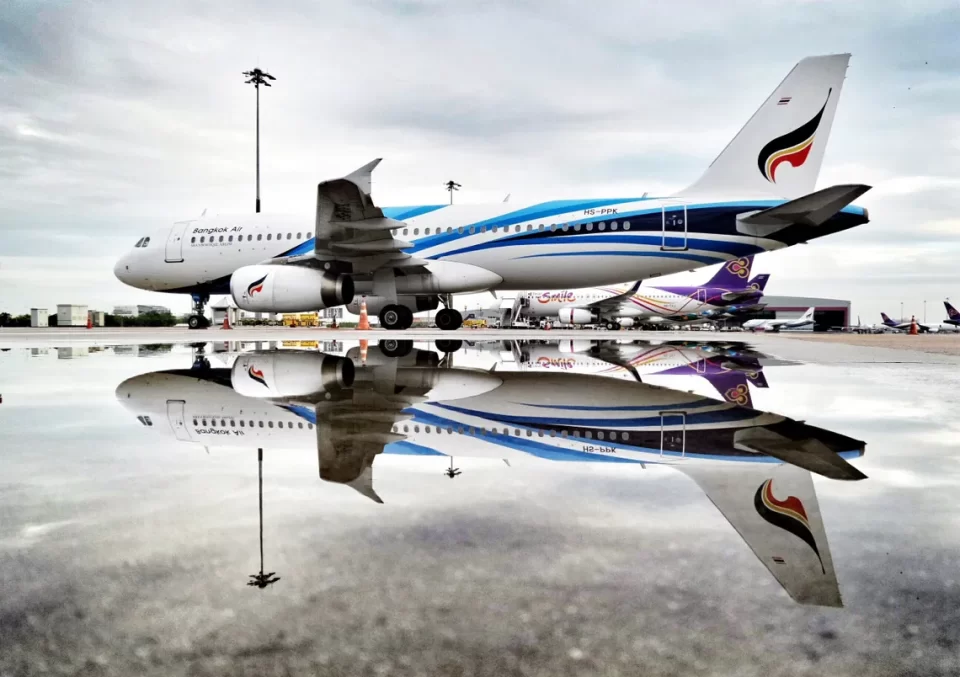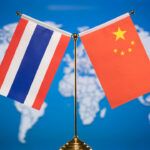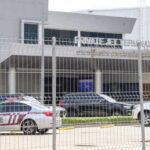Bangkok Airways is a pioneer in environmentally friendly aviation thanks to its upcycling of old employee uniforms into brand-new items that cut down on waste and carbon emissions.
As more passengers choose green airplanes, emerging airlines are being forced to prioritize sustainability despite greater costs.
Bangkok Airways wants to become carbon neutral by 2050 with its “Fly Net Zero 2050” effort, which involves lowering CO2 emissions and promoting waste management. Bangkok Airways keeps up with its promise to turn into a carbon-neutral airline. Its most recent initiative involves recycling its old staff uniforms to create a variety of products. In an effort to reduce their carbon footprint, an increasing number of airlines, including Bangkok Airways, are using apparel and uniforms. Finnair has taken things a step further by repurposing worn-out uniforms as park benches.The majority of airlines have initiated sustainability programs, and most of them hope to achieve carbon neutrality by 2050 at the very least. More ecologically friendly airlines are preferred by passengers, to the point where it’s become a selling factor. Despite the higher cost, it has prompted new carriers like Akasa Air to concentrate on sustainability.
Carbon balance
The endeavor is a component of Bangkok Airways’ “Fly Net Zero 2050” initiative, which aims to achieve carbon neutrality by that year. Through this project, microplastics, carbon dioxide (CO2) emissions, and power use will all be decreased. To help the airline’s sustainability efforts even more, the company has adopted the “Drop Box” idea. The BankokAirways Boutique Lounges at Suvarnabhumi Airport’s domestic and international terminals have drop boxes placed. In order for the airline to utilize the materials in its waste management program, the scheme invites travelers to dump used plastic water bottles and other recyclable items at designated locations. The airline’s “Waste Segregation for Wonderful Benefits” program has also started. At Suvarnabhumi Airport’s upscale passenger lounges and eventually, at other hubs, waste-sorting bins will be put in place.
Regarding the project and its effects, Mrs. Ariya Prasarttong-Osoth, a member of the executive committee and the chairperson of corporate social responsibility of Bangkok Airways PCL, stated the following:
“To further reaffirm our dedication to minimizing the environmental impact of our operations and the dedication of the top airlines in the world to reaching 2050 Net Zero Carbon Emissions. Therefore, we started an upcycling project for worn uniforms and asked our staff to contribute their used uniforms so that we could apply upcycling techniques to turn the old uniforms into new items.
The specifics
Bangkok Airways has teamed up with the biotech company Circular Industry Company Limited for this effort to advance the circular economy. “Connect Your Happiness,” the airline’s sustainability tagline, is supposed to convey this. Mrs. Ariya Prasarttong-Osoth provided more information on the upcycling project: “We invited our staff to donate their used uniforms so that we can have those old uniforms upcycled into new products.” This project highlights our “Love Earth – Save Earth” campaign, where we place a focus on waste management and climate change management, as we take something already made and turn it into a new item to use in our business, which is a limited edition apron for our airport lounge agents.
Used uniforms weighing more than 150 kg were processed without bleaching and color-sorted. The upcycling procedure does not harm the environment and also stops the development of microplastics (PM2.5 particles). About 300 goods, including tote bags, water cup bags, and aprons for employees at airport lounges, have been created through the process. Additionally, 1,826 kW of power and 307.44 kg of carbon dioxide (CO2) were avoided by the method. Through their collaboration with the Circular Industry Company Limited, the airline enables the production of plastic fibers that may be utilized in a variety of applications from recyclable materials that customers store in their Dropbox accounts.
READ MORE: https://bangkokone.news





